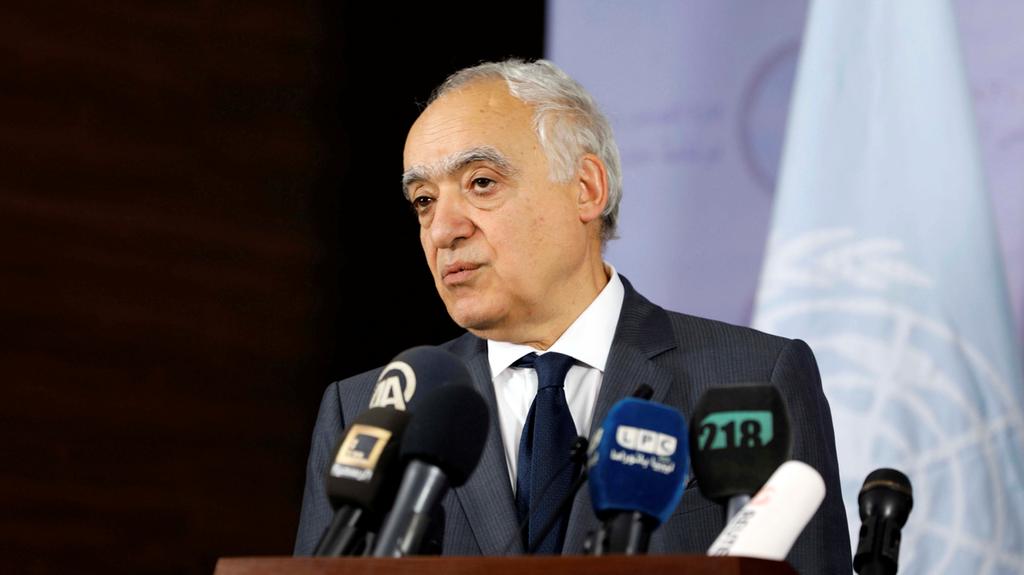This summer has seen a flurry of summits and meetings on Libya. On 25 July, Paris hosted a meeting between Sarraj and Haftar. Last week, Brazzaville hosted a meeting of the African Union with Prime Minister Faiez Sarraj, Speaker of the House of Representatives Aghila Saleh and Chairman of the High State Council Abdul Rahman Swehli attending. This week, foreign ministers and top diplomats of the US, UK, France, Italy, Egypt and the UAE met in London to discuss Libya with the new UN Special Representative Ghassan Salameh.
The most important meeting will take place next week in New York, on the margins of the UN General Assembly. Salameh is expected to present his plan to move the political process forward to the ministers of the countries most interested in Libya, including many Arab countries. His main challenge will be to resist pressure from ministers and heads of government to produce results in the short term and instead focus on a solid strategy that includes both a political process and efforts at stabilization and de-escalation.
Since starting his work in late July, Salameh has approached the Libyan file with caution and an open mind. Rather than making grand statements, he has travelled throughout Libya meeting hundreds of Libyans apart from the big political and military names. He was already familiar with the country because of his academic activity but his recent tour and the meetings with Haftar and other important stakeholders have probably injected a further note of caution in his approach.
The agenda for him was set by the work of his predecessor Martin Kobler and most importantly by the negotiations conducted between Cairo and Abu Dhabi since December 2016. First, to include Haftar and his supporters in the existing Libyan Political Agreement (also known as the Skhirat agreement), he must help the House of Representatives and the High Council of State negotiate a number of amendments to the agreement. Once amended the agreement, the same parties will have to make the appointments in the main institutions. This should lead, according to the joint declaration agreed by Haftar and Sarraj in Paris in July, to elections in early 2018. Meanwhile, the Libyan Constitutional Drafting Assembly based in Bayda has approved a draft constitution in August and in theory this should be submitted to a referendum in the coming months.
Getting all these elements in the right sequence is the first challenge for Salameh but the biggest one is navigating the apparent agreement of all the major stakeholders on this plan and the reality of big divisions on its implementation. For example, while everyone agrees that the Agreement should be amended to create the figure of the Prime Minister and to reduce the Presidency Council from nine to three members, the different factions have radically different ideas on who should cover those positions and even on how they should be allocated.
Secondly, while paying lip service to reforming the agreement, some figures have all the interest in perpetuating the status quo. All changes should go through the House of Representatives headed by Aghila Saleh, but he has shown over and over that he has no interest in changing the current situation in which he has considerable power also vis-à-vis Haftar. So either Aghila stops the reform from moving forward in the House of Representatives or even if this is approved, it would take a long time to agree on the new names. And this would be temporary names in view of the elections.
Elections are a big question mark as it is unclear whether Aghila would quickly approve the law that is required to hold them. And of course, it is unclear if elections would be both for parliament and for president. Haftar has made it clear that he would like to run for president, but it is unclear how one could hold such elections without a constitution stating the powers of the new office. Since 2011, Libya has not had a President of the Republic, not even a temporary one.
To reduce Aghila’s veto power on any agreement, the process would need to take the reform of the House of Representatives seriously. This is crucial if any roadmap is to be approved and if the Libyan government is to work according to rules and institutions. Currently, the meetings of parliament with the highest attendance gather only half of the members and the House has been unable to approve anything significant in the last year. Brokering a compromise to reintegrate all members of parliament will have to be part of the plan, perhaps including the move to a more neutral location than Aghila’s “fiefdom” in Tobruk.
All of this will require time, much more than the few months from now until early 2018. Salameh, with the cooperation of concerned countries, must be empowered to work also on stabilization of Libya even in the absence of a big political agreement. This means having a government in charge of public services, a recognized Central Bank and an economic process to share the wealth of the country alongside mechanisms to avoid military escalation, rebuild Benghazi, ensure the return of the internally displaced and address the humanitarian crisis particularly in the south.
Ultimately, Ghassan Salameh can only do this if there is, from the side of Libyan leaders, willingness to compromise and focus on solutions. The Libyan social fabric made of activists, mayors, notables and tribal leaders has often demonstrated a more constructive behavior than military and political leaders. Choosing the right mix between these components will be key but before that Salameh will need to get the right support from international leaders in New York. The message should be to do well, not quickly on the political process while showing a commitment to address the humanitarian issues that affect the daily lives of Libyans.
Mattia Toaldo is a Senior Policy Fellow at the European Council on Foreign Relations in London
